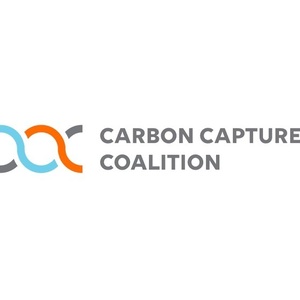Carbon Capture Coalition comments on CEQ's CCUS guidance document

April 19, 2022
BY Erin Krueger
A public comment period on the White House Council on Environmental Quality’s interim guidance on carbon capture, utilization and sequestration (CCUS) closed on April 18. The Carbon Capture Coalition is among the groups that weighed in on guidance document, which aims to assist federal agencies with regulation and permitting of CCUS activities in the U.S.
Development of the guidance document was mandated by the Utilizing Significant Emissions with Innovative Technologies (USE IT) Act, signed into law in December 2020. The CEQ first released the guidance document on Feb. 16. A public comment period was originally scheduled to close March 18 but was later extended through April 18.
A statement released by the White House in February explains the CEQ’s guidance is designed to help federal agencies ensure that the advancement of CCUS technologies is done in a responsible manner that incorporates the input of communities and reflects the best available science.
Advertisement
According to the White House, the CEQ recommends that federal agencies evaluate the impact of proposed CCUS actions on potential host communities early in the planning process; provide information about the effects, costs and benefits of CCUS in advance of Tribal consultation and stakeholder engagement; consult Tribal Nations on potential CCUS projects in a manner that strengthens Nation-to-Nation relationships; avoid the imposition of additional burdens on overburdened and underserved communities, including by evaluating direct, indirect and cumulative effects and identifying and implementing appropriate mitigation and avoidance measures; and provide transparency and accountability to communities with respect to applicable mitigation measures designed to reduce environmental effects.
“Many of the recommendations made within the interim guidance echo consensus-based positions developed by the Coalition’s more than 90 companies, unions, and conservation and environmental organizations,” said the Carbon Capture Coalition in its comments. “Our members look forward to working with the Administration and Congress to ensure swift and efficient implementation of the historic carbon management provisions contained in both the USE IT Act and the recently-enacted bipartisan Infrastructure Investment and Jobs Act (IIJA).”
The Coalition stresses that in addition to project financing, engineering and design studies, successful CCUS project deployment will require both meaningful engagement and coordination with local communities, as well as timely and robust permitting at the state and federal level.
Additional information is available under docket number CEQ-2022-0001 on the www.regulations.gov website.
Advertisement
Related Stories
President Trump on July 4 signed the “One Big Beautiful Bill Act.” The legislation extends and updates the 45Z credit and revives a tax credit benefiting small biodiesel producers but repeals several other bioenergy-related tax incentives.
CARB on June 27 announced amendments to the state’s LCFS regulations will take effect beginning on July 1. The amended regulations were approved by the agency in November 2024, but implementation was delayed due to regulatory clarity issues.
SAF Magazine and the Commercial Aviation Alternative Fuels Initiative announced the preliminary agenda for the North American SAF Conference and Expo, being held Sept. 22-24 at the Minneapolis Convention Center in Minneapolis, Minnesota.
Saipem has been awarded an EPC contract by Enilive for the expansion of the company’s biorefinery in Porto Marghera, near Venice. The project will boost total nameplate capacity and enable the production of SAF.
Global digital shipbuilder Incat Crowther announced on June 11 the company has been commissioned by Los Angeles operator Catalina Express to design a new low-emission, renewable diesel-powered passenger ferry.
Upcoming Events










